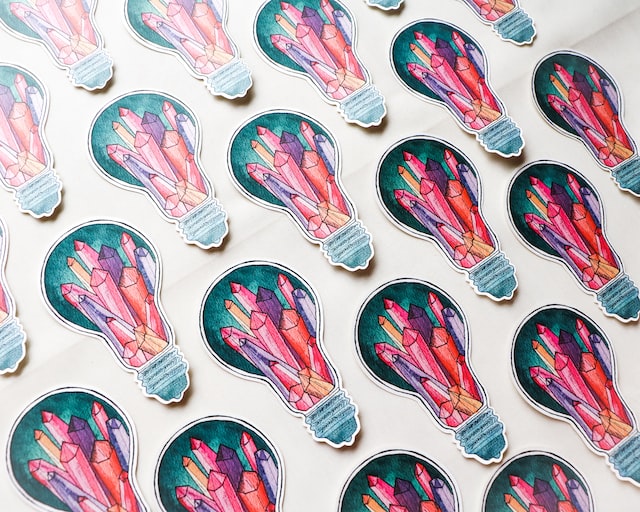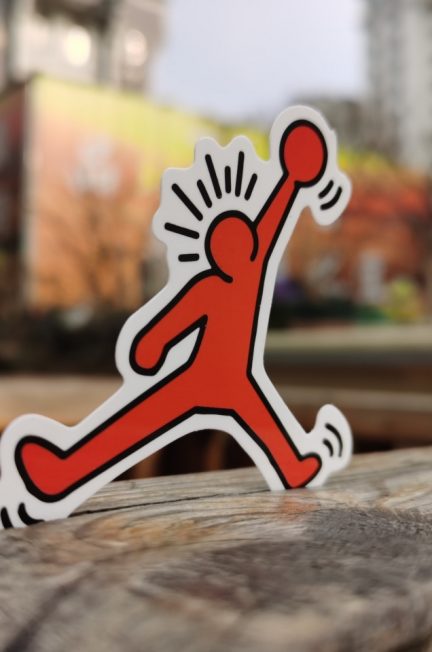Are you searching for a way to increase your business’ marketing impact? Custom pins are the ideal solution. However, creating unique pins can be challenging if you aren’t well-versed in this process.
The initial step in designing your business logo is deciding on a design that accurately represents both you and its target market.
1. Decide on the Material
Custom pins are an effective way to promote your business, brand or social group. But before you start creating the pins for your custom order, it’s essential that you select the material. The selection of materials will determine how they look and feel when worn.
Stainless steel and bronze are two of the most sought-after materials for custom pin designs. These metals offer a polished aesthetic, ideal for pin designs. Plus, their high resistance to environmental elements make them ideal choices for outdoor wear as well as promotional products. Also, do not lose sight of the acrylic pins.
Though stainless steel and bronze are both suitable materials for pins, it’s essential to take your design into consideration when choosing which material works best. For instance, using stainless steel may not be ideal if your creation includes any elements that could be damaged due to exposure to external elements.
When selecting materials, color is another factor to consider. Pick colors that will work together harmoniously and complement each other’s design. You can consult a Pantone color book to ensure you select the correct hues.
If you’re uncertain which colors would look best together, asking a friend for advice may be beneficial. Doing this ensures your custom pins will look exactly how beautiful you imagined them to look.
When designing custom pins, the size is another important factor to consider. Larger pins tend to be more expensive than smaller ones but offer more design freedom and are likely better suited to fit within budget constraints.
When selecting pin size, you should take into account both your design and how many people you plan to distribute the pins to. If giving away pins is your intention, be sure that your manufacturer offers free back stamps; this will enable you to add a logo or other information onto the backs of your pins.

Finally, you must consider price. Take into account both materials and any add-ons if desired – for instance, hard enamel pins tend to be more costly than dimensional print pins. Furthermore, don’t forget about shipping fees which should also be factored into your calculations.
2. Decide on the Design
Designing a custom pin can be an enthralling and rewarding process. With some research, planning, and creativity you can turn your idea into an attractive product that helps differentiate your brand from competitors while growing your business.
Once you’ve chosen the material and size for your pin, it’s time to think about design. There are plenty of options when it comes to custom pins; find one that works well with both your business objectives and budget.
Selecting the ideal design is critical for designer success, as it should incorporate elements that appeal to your audience, such as a catchy name or humorous ecommerce description, and be eye-catching enough for customers to want to add it to their collection.
A great way to determine if your design is on track is by asking a friend or family member for some feedback. They may not be experts in pin designing, but they will know what a quality design looks like and can offer valuable advice that will help maximize the return on your investment.
It’s also beneficial to provide potential customers with a small sample of your product so they can see how it appears in person and decide if they like it.
Finally, you’ll need to decide where best to sell your custom pins. Options include local businesses, social media platforms or even your own website.
Once you determine which materials are ideal for your pins, such as soft or hard enamel, you’ll have to decide which offers the best performance and cost-efficiency. Selecting the correct material will enable you to craft a product that stands out and can withstand everyday abuse.
3. Decide on a Manufacturer
If you want to design unique custom pins for your business, it is essential that you select a manufacturer who produces high-quality pins. Your ideal partner should provide plenty of options for design and guarantee each piece is created according to exact specifications.
You need a partner who is flexible and willing to collaborate on every step of the process, from concept to final product. Furthermore, look for suppliers with quick order processing capabilities and who can manage high-volume orders without compromising quality or customer service.
Quality enamel pin manufacturers allow you to upload your designs as a digital file, so they can create a proof of your pin for you to review prior to production starting. This is an essential step in the design process since this is when you’ll see your pin in its final form for approval.

It’s essential that the proof process be straightforward and allow for flexibility when necessary. A too complex or restrictive proofing procedure could result in additional work and delays.
Unfortunately, this can lead to missed expectations or a design that does not accurately reflect your vision. To avoid such problems, find a manufacturer who allows changes as needed and will refund full payment if any issues arise during the design process.
When ordering a large quantity of pins, it’s essential to find a manufacturer with lower per-unit pricing. Doing so can help keep your costs down while still producing top quality custom pins.
Another consideration when searching for a manufacturer is their selection of colors and materials. This could include different finishes, backing attachments, as well as specialty materials like shiny rose gold or antique copper. As well as the possibility of manufacturing other products, for example acrylic stand, this will allow you to save on the delivery of several types of products from one manufacturer at once.
A reliable enamel pin manufacturer should offer all these features at no extra charge, even for small runs. Their design tool makes it easy to select the styles, colors, sizes and backing attachments that work best for your project – saving both time and money by making the job quicker and more efficient.
4. Decide on the Quantity
One of the biggest decisions you’ll face with your custom pin project is quantity. Many manufacturers require a minimum order quantity (MOQ) before they will process your order, helping ensure you don’t order more product than necessary. It’s wise to start small and then increase once sales start picking up.
To determine pricing, contact a manufacturer and ask what they recommend. Alternatively, their website may have a chart showing prices for various size and quantity options.
This chart can give you an estimate of the base cost for your pin. It may take into account various factors like material used, size and detail, as well as how many colors are included in the design.
For instance, a simple 3 to 5 color design that measures 1-1.5 inches at its largest point and is produced in 500 quantities could cost as little as $1-$2/pin. On the other hand, complex 10-12+ color designs with glow, glitter, cut outs or moving parts that measure 1.5 or more inches would likely be more costly.
Another aspect to consider when creating your pin is the base metal used. There are four common bases metals you can select from, each impacting the cost of your pin; iron being the cheapest option and brass or copper being more costly.
Additionally, be sure to compare shipping costs when comparing quotes. A steep shipping bill can be a major deterrent, particularly if you plan on selling your custom pins online or in person at your local store.
Finally, be sure to inquire if the manufacturer offers multiple proofs during production. These can help guarantee your pins are flawless before shipping them out – saving time and money in the long run and giving you a better indication of whether or not your custom pins truly unique.



